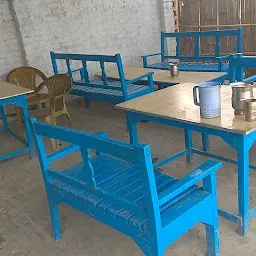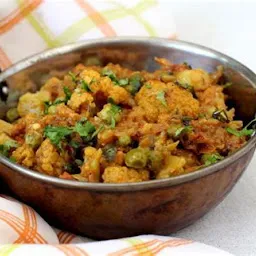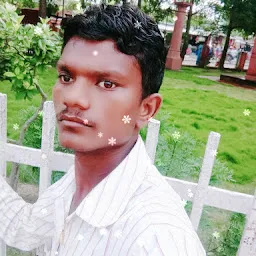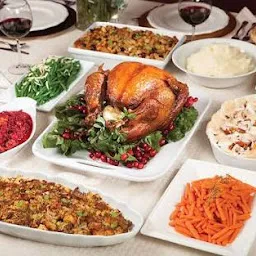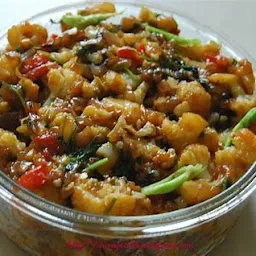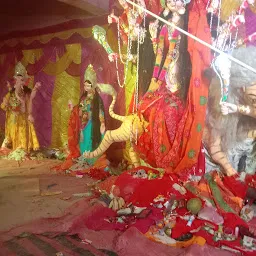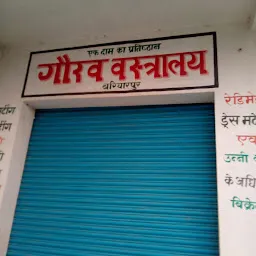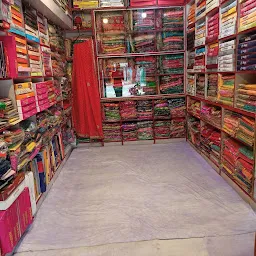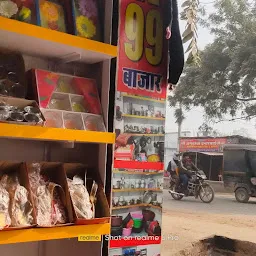ॐ श्री लाईन होटल
Wednesday 24 hours open
ॐ श्री लाईन होटल is a indian restaurant located in Sitamarhi, Bihar. The average rating of this place is 4.20 out of 5 stars based on 20 reviews. The street address of this place is JG4P+4P2, बरियारपुर, Sitamarhi, Dostpur Khadauli, Bihar 843314, India. It is about 3.52 kilometers away from the Sitamarhi railway station.
- Where is ॐ श्री लाईन होटल located?
- ॐ श्री लाईन होटल is located at JG4P+4P2, बरियारपुर, Sitamarhi, Dostpur Khadauli, Bihar 843314, India.
- What is the off day for ॐ श्री लाईन होटल?
- ॐ श्री लाईन होटल is 7 days open 24hr
- What is the nearest railway station from ॐ श्री लाईन होटल?
- Sitamarhi railway station is the nearest railway station to ॐ श्री लाईन होटल. It is nearly 3.52 kilometers away from it.
pappu kumar 58 months ago
Money is any item or verifiable record that is generally accepted as payment for goods and services and repayment of debts, such as taxes, in a particular country or socio-economic context.[1][2][3] The main functions of money are distinguished as: a medium of exchange, a unit of account, a store of value and sometimes, a standard of deferred payment.[4][5] Any item or verifiable record that fulfils these functions can be considered as money.
Money is historically an emergent market phenomenon establishing a commodity money, but nearly all contemporary money systems are based on fiat money.[4] Fiat money, like any check or note of debt, is without use value as a physical commodity. It derives its value by being declared by a government to be legal tender; that is, it must be accepted as a form of payment within the boundaries of the country, for "all debts, public and private".[6] Counterfeit money can cause good money to lose its value.
The money supply of a country consists of currency (banknotes and coins) and, depending on the particular definition used, one or more types of bank money (the balances held in checking accounts, savings accounts, and other types of bank accounts). Bank money, which consists only of records (mostly computerized in modern banking), forms by far the largest part of broad money in developed countries.[7][8][9]
Contents
1 Etymology
2 History
3 Functions
3.1 Medium of exchange
3.2 Measure of value
3.3 Standard of deferred payment
3.4 Store of value
4 Properties
5 Money supply
5.1 Creation of money
5.2 Market liquidity
6 Types
6.1 Commodity
6.2 Representative
6.3 Fiat
6.4 Coinage
6.5 Paper
6.6 Commercial bank
6.7 Digital or electronic
7 Monetary policy
8 Counterfeit
9 Laundering
10 See also
11 References
12 Further reading
13 External links
Etymology
The word "money" is believed to originate from a temple of Juno, on Capitoline, one of Rome's seven hills. In the ancient world Juno was often associated with money. The temple of Juno Moneta at Rome was the place where the mint of Ancient Rome was located.[10] The name "Juno" may derive from the Etruscan goddess Uni (which means "the one", "unique", "unit", "union", "united") and "Moneta" either from the Latin word "monere" (remind, warn, or instruct) or the Greek word "moneres" (alone, unique).
In the Western world, a prevalent term for coin-money has been specie, stemming from Latin in specie, meaning 'in kind'.[11]
History
Main article: History of money
A 640 BC one-third stater electrum coin from Lydia
The use of barter-like methods may date back to at least 100,000 years ago, though there is no evidence of a society or economy that relied primarily on barter.[12] Instead, non-monetary societies operated largely along the principles of gift economy and debt.[13][14] When barter did in fact occur, it was usually between either complete strangers or potential enemies.[15]
Many cultures around the world eventually developed the use of commodity money. The Mesopotamian shekel was a unit of weight, and relied on the mass of something like 160 grains of barley.[16] The first usage of the term came from Mesopotamia circa 3000 BC. Societies in the Americas, Asia, Africa and Australia used shell money – often, the shells of the cowry (Cypraea moneta L. or C. annulus L.). According to Herodotus, the Lydians were the first people to introduce the use of gold and silver coins.[17] It is though
Nest Study 58 months ago
Great for men no for family
vikki raj 58 months ago
Hiiii
Yes it was a nice
- Address
- JG4P+4P2, बरियारपुर, Sitamarhi, Dostpur Khadauli, Bihar 843314, India
| Friday | 24hr open |
|---|---|
| Saturday | 24hr open |
| Sunday | 24hr open |
| Monday | 24hr open |
| Tuesday | 24hr open |
| Wednesday | 24hr open |
| Thursday | 24hr open |
N.B. The timetable is based on our last updated data on January 27, 2024.
